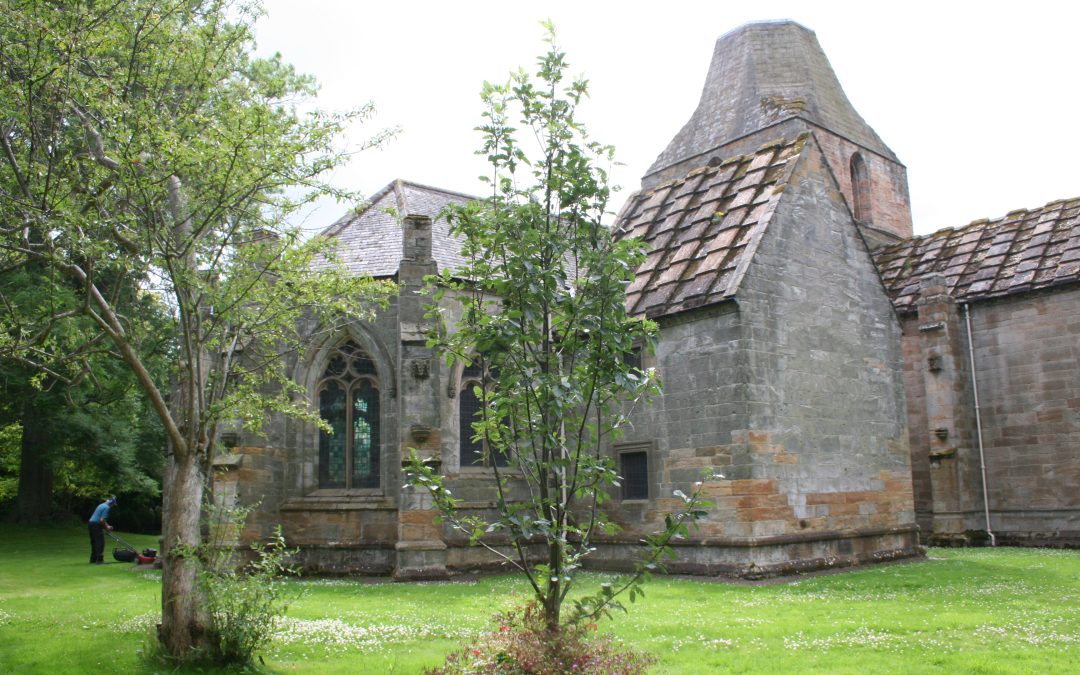The church is known for its stunning architecture, which combines elements of Gothic and Romanesque styles. It features a number of impressive features, including a beautiful rose window, intricate stone carvings, and a striking bell tower. The interior of the church is equally impressive, with a number of stunning stained glass windows, intricate wood carvings, and a beautiful altar.
Today, Seton Collegiate Church is a popular tourist attraction and is visited by thousands of people each year. It is also still used for religious services and is a popular venue for weddings and other special events. Whether you are interested in history, architecture, or religion, Seton Collegiate Church is definitely worth a visit.
History of Seton Collegiate Church
Seton Collegiate Church is a historic church located in East Lothian, Scotland. The church was founded in the 15th century by Lord Seton, who was a prominent figure in Scottish history. The church was originally intended to serve as a college of priests, and it was dedicated to the Holy Trinity.
The church was built in the Gothic style of architecture, and it features a number of impressive features, including a beautiful stained glass window and a vaulted ceiling. Over the years, Seton Collegiate Church has undergone numerous renovations and restorations, but it still retains much of its original character and charm.
In the 16th century, Seton Collegiate Church was caught up in the conflict known as the Rough Wooing, which was a series of military campaigns launched by the English against Scotland. The church was badly damaged during this time, but it was eventually restored to its former glory.
Today, Seton Collegiate Church is a popular tourist destination, attracting visitors from all over the world who come to admire its stunning architecture and learn about its fascinating history. The church is located just a short drive from Edinburgh, making it an easy day trip for those visiting the Scottish capital.
The church is also an important cultural and religious landmark, and it continues to play a vital role in the life of the local community. The Earl of Wemyss is the current patron of the church, and he has worked tirelessly to ensure that it remains a vibrant and active place of worship.
Architectural Features
The Choir
The choir of Seton Collegiate Church is located at the east end of the nave and dates back to the 15th century. It features a beautiful wooden screen that separates it from the chancel. The choir also contains several effigies of the Seton family, including that of Alexander Seton, the founder of the church.
The Chancel
The Tower
The tower of Seton Collegiate Church is one of its most striking features. It is located at the west end of the church and is topped by a spire. The tower dates back to the 14th century and is a fine example of English Gothic architecture.
The Transepts
Seton Collegiate Church features two transepts, one on either side of the nave. They date back to the 15th century and contain several interesting features, including the Seton family coat of arms.
The Sacristy
The sacristy of Seton Collegiate Church is located on the north side of the chancel. It was used for storing vestments and other church furnishings. The sacristy dates back to the 15th century and features a beautiful vaulted ceiling.
The Apse
The Vaulted Chancel
The chancel of Seton Collegiate Church features a beautiful vaulted ceiling. The ceiling is made up of several arches and is supported by columns. It is one of the most striking features of the church.
The Stonework
The stonework of Seton Collegiate Church is a testament to the skill of its builders. The church is constructed from a mix of sandstone and limestone, and features intricate carvings and mouldings throughout.
Location and Access
Seton Collegiate Church is located in the village of Port Seton, East Lothian, Scotland. It is situated on the coast, approximately 12 miles east of Edinburgh. The church is easily accessible by car, bus or train.
Visitor Access
The church is open to visitors every day from 10 am to 4 pm. Admission is free, but donations are welcome. Visitors can explore the church and its grounds at their own pace. The church has a small gift shop where visitors can purchase souvenirs.
Access Restrictions
The church also has restrictions on photography and filming. Visitors are not permitted to take photographs or film inside the church without prior permission. Flash photography is strictly prohibited.
To find Seton Collegiate Church, visitors can use the following address:
Seton Collegiate Church
Links Road
Port Seton
East Lothian
EH32 0QF
Alternatively, visitors can use the following Google Map link: https://goo.gl/maps/9VvH4yj8L7K2
Visitor Experience
Facilities
Seton Collegiate Church offers several facilities to visitors, including:
- Free parking
- Wheelchair access
- Toilets
- Gift shop
- Cafe
Visitors can enjoy a cup of coffee or tea while exploring the church and its surroundings. The gift shop offers a variety of souvenirs, including books, postcards, and jewellery.
Fun Fact-Finding Quiz
Visitors can participate in a fun fact-finding quiz to learn more about the history of Seton Collegiate Church. The quiz is suitable for all ages and can be completed individually or in groups. The quiz is available at the entrance of the church.
Scavenger Hunt Challenge
For those looking for a more interactive experience, Seton Collegiate Church offers a scavenger hunt challenge. The challenge is suitable for families and groups and can be completed at any time during the church’s opening hours. The scavenger hunt is a great way to explore the church and its surroundings while learning about its history and architecture.
Visitors can pick up a scavenger hunt sheet at the entrance of the church. The sheet includes a list of clues and tasks that must be completed to finish the challenge. The scavenger hunt takes approximately 45 minutes to complete.
Preservation and Conservation
Seton Collegiate Church is a Scheduled Monument, which means it is a legally protected site of national importance. Historic Environment Scotland is responsible for ensuring that the monument is preserved and conserved for future generations to enjoy.
The preservation and conservation of Seton Collegiate Church is a complex and ongoing process that involves a range of different techniques and strategies. One of the most important aspects of this work is ensuring that the fabric of the building is protected from the effects of weathering and decay.
To achieve this, a number of different conservation techniques have been used, including:
- Repointing of stonework
- Replacement of damaged stonework
- Consolidation of fragile stonework
- Treatment of timber elements to prevent rot and decay
In addition to these physical conservation measures, the site is also carefully managed to ensure that it is not damaged by visitors or other external factors. This includes regular monitoring of the site, as well as the implementation of appropriate visitor management strategies.

